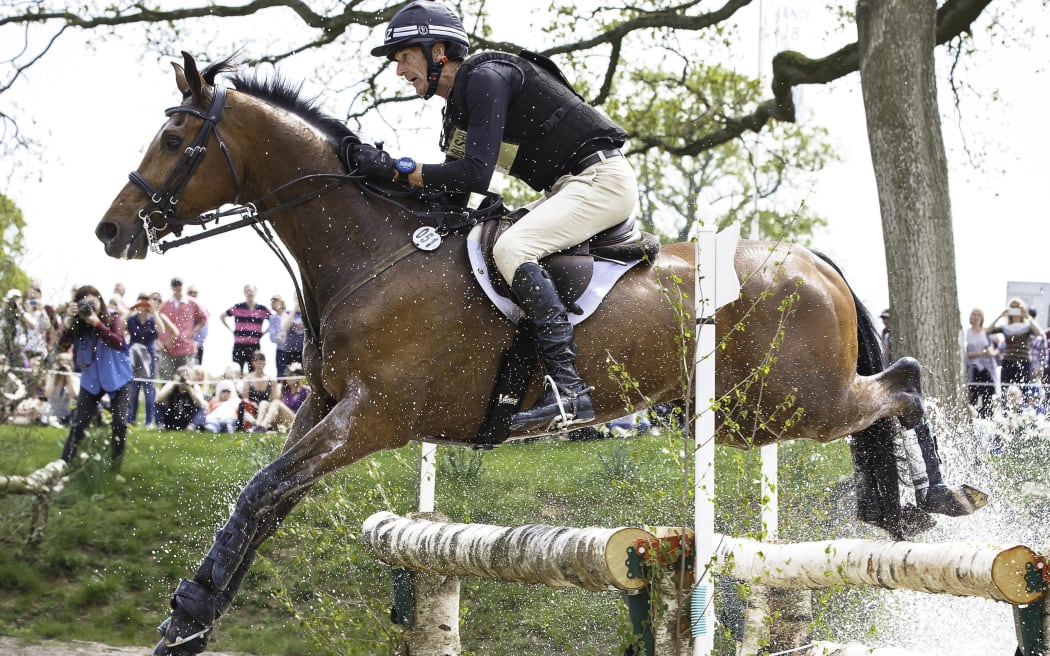Olympic Disciplines - The equestrian disciplines are unique events at the Olympic Games, not only because they involve animals, but they are where women and men compete together on equal terms.

Sir Mark Todd on Leonidas II. Photo: Photosport
Equestrian involves three disciplines - eventing, jumping and dressage and the horse is considered as much an athlete as the rider.
Aside from the equestrian component of modern pentathlon, the equestrian events are the only Olympic events that involve animals
Competition at Rio
When: Competition will take place from 5 to 21 August, including the equestrian opening and closing ceremonies.
Eventing (Team and Individual): 6-9 August
Jumping: 14 August (1st Qualifier), 16-17 August (Team), 19 August (Individual)
Dressage: 10-11 August Grand Prix (Individual & Team Qualifier), 12 August Grand Prix Special, (Team Final, Second Individual Qualifier), 15 August Grand Prix Freestyle (Individual Final)
Where: Olympic Equestrian Centre, Deodoro.
The Disciplines
Eventing - both team and individual competitions. Riders and horses (combinations) compete across the three disciplines - dressage, cross-country and jumping - to decide the medals. Riders compete on the same horse in all three disciplines with their scores counting for both the individual and team competitions. In the team competition each team has four combinations, with the best three scores to count. The top 20 individuals then jump (in the final showjumping phase) again to decide the individual medals. Jump-offs may be held if necessary.
Jumping - both team and individual competitions. The top 10 teams qualify for the second round where the medals will be decided. Individuals face up to three qualifying rounds, with the top 25 contesting the medals. Jump-offs may be held if necessary.
Dressage - the top six teams after the Grand Prix test battle it out for the medals in the Grand Prix Special. Again, the top three scores from each of the team-members across both tests count towards the final score. Individual medals are decided in the Grand Prix Freestyle, which is open to the top 18 combinations from the Grand Prix Special.
The Stars of Equestrian
The New Zealand eventers are well regarded and recognised as some of the most accomplished and successful in the world, particularly Sir Mark Todd and Andrew Nicholson, both of whom have been based in the UK for many years.
Andrew Nicholson is continuing to recover from a fall in late 2015 and is hoping to be competing again by the 2016 Badminton Horse Trials. Over the last 12 months Sir Mark and rising stars Jonelle and Tim Price have all featured in the top 10 in the FEI world rider rankings.
Brit William Fox-Pitt and German Michael Jung are two of the best. Jung is the only rider to hold the World, Olympic and European titles at the same time. He won the individual gold at the London Olympics, and was a member of the winning team.
Fox-Pitt's career highlights include an Olympic team silver medal at both the 2004 Summer Olympics in Athens and the 2012 Summer Olympics in London, and a team gold and individual silver at the Alltech FEI World Equestrian Games at Kentucky in 2010.
He unfortunately was in a riding accident in October 2015 and remains in a recovery phase, so his attendance at Rio is yet to be confirmed.
The Germans and Dutch dominate the world of dressage, although none of their individual riders can touch Charlotte Dujardin (GBR) and her horse Valegro.
Did you know?
All of New Zealand's Olympic equestrian medals have been won by eventers
Sir Mark Todd has ridden at two Olympics in two disciplines - Seoul (1988) and Barcelona (1992) - in both eventing and showjumping. He has as many medals as any other New Zealand athlete to date, with five to his name, including two golds and the strong prospect of adding to that medal tally at Rio.
One of the challenges the sport faces is that there are no direct flights for horses from New Zealand to Brazil, so those not already based in the UK, Europe or the USA will need to travel a significant distance, over multiple legs, to have access to flights to Rio.
To return to New Zealand after the Olympics, the horses will then need to go back to the country they came from and complete a six month stay there, in addition to a quarantine period, before they are able to return home.
Riders in the jumping competition at Rio need to be at least 18-years-old, with horses at least 9-years-old, while dressage competitors need to be 16-years-old, with horses 8-years-old and over.

